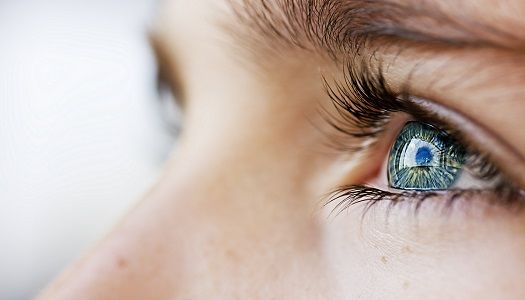This Is Why Patients Stop Adalimumab Treatment for JIA-Associated Uveitis
Despite good responses, patients dropped adalimumab treatment.

Juvenile idiopathic arthritis (JIA) is the most common systemic disease associated with pediatric uveitis, and the prevalence of uveitis in JIA patients is 12%. JIA-associated uveitis (JIAU) typically affects the anterior chamber of the eye. It tends to be chronic and also has a high rate of complications and worse outcomes than other causes of uveitis. Therefore, when JIAU is refractory to standard therapy, it often requires long-term treatment with an anti-tumor necrosis factor-α (anti-TNF-α) agent.
In a recent retrospective analysis, German and Swiss researchers identified four key reasons for discontinuing long-term treatment with the anti-TNF-α agent adalimumab (Humira/Roche) in patients with JIAU refractory to standard therapy who had initially responded to adalimumab.
In the study, researchers from medical universities in Essen and Muenster, Germany, and Berne, Switzerland, evaluated 387 patients with JIAU. Sixty-eight patients received adalimumab, and 59 of them (87%) responded sufficiently to it within six months of initiation of treatment.
This percentage of responders is the same as that found for adalimumab in a meta-analysis of 23 observational studies of the effectiveness anti-TNF-α agents when used as first-line biologics for pediatric chronic autoimmune uveitis refractory to standard therapy.
Further findings revealed 39 of the 59 sufficient responders (66%) were still receiving adalimumab at their final visit. The duration of treatment for these responders ranged from 12 to 91 months, which averaged out to 38 months.
This finding is consistent with that in an earlier, Finnish study of JIAU patients treated with adalimumab. That study found good clinical control of uveitis in 66% of 54 such patients after two years. However, this response rate is lower than the 78% response rate found in an earlier German study of 23 children with severe chronic anterior uveitis treated with adalimumab.
In the current study, after one or two years or longer, adalimumab was discontinued in 20 of 59 patients (34%) with JIAU. In this group of 20 discontinuers, two patients (10%) discontinued adalimumab after one year and nine patients (45%) discontinued after two years. Another nine patients (45%) discontinued the treatment after more than two years. In discontinuers as a group, duration of treatment averaged 31 months with a 10 to 65-month range.
Adalimumab was discontinued for the following reasons:
1. Reactivation of uveitis: Four per 100 patient-years (40%)
2. Reactivation of JIA: Two per 100 patient-years (20%)
3. Adverse events: Two per 100 patient-years (20%)
4. Complete disease inactivity for two years or more: 1.5 per 100 patient-years (15%)
5. Other reasons: 0.5 per 100 patient-years (5%)
These findings prompted the German and Swiss team to conclude that, despite the good primary response to adalimumab in patients with refractory JIAU, the increasing rate of adalimumab failure or adverse events over the long term may necessitate additional treatment options.
The study, “Discontinuation of long-term adalimumab treatment in patients with juvenile idiopathic arthritis-associated uveitis,” appears in the January, 2017, issue of Graefe’s Archive for Clinical and Experimental Ophthalmology.
Related Coverage:
Tocilizumab Effective for Uveitis in Juvenile Idiopathic Arthritis
Adalimumab Effective for Uveitis Associated with Juvenile Idiopathic Arthritis
Infliximab Antibodies Formation Differs in Children with Uveitis, Refractory Arthritis